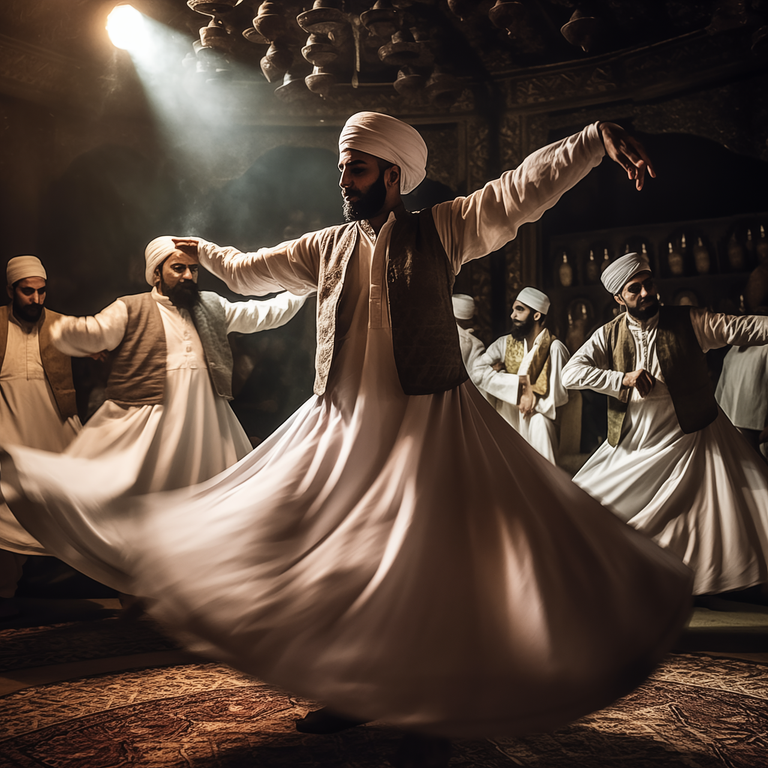
Do not turn to look at every beggar that beckons – you belong to me!
Do not sell yourself short, for you are priceless.
Part the waters with your staff – you are today’s Moses.
Tear through the cloak of fog! You are of the light, the same light as Mohammad.
Shatter the mirrors of the beautiful, you are the dazzling Joseph.
Blow the breath of life like Christ – you, too, are of that air.
Break away from the unscrupulous; do not fall for the deceit of ghouls.
You are of noble origin – you are from the highest high.
By spirit, you are deathless – imperishable; magnificent from within.
You belong to the glorious – you are of divine radiance.
What have you seen of your own beauty?
You are still veiled…
One dawn, like the sun, you will rise up from within yourself.
It is a shame to be shrouded this way like the moon under a cloud.
Tear through the cloud of body! You are the magnificent moon.
You are like a hawk whose feet are bound, tethered to the body –
It is with your own claws that you must untie the knots.
Jalaluddin Rumi
In this beautiful poem, Rumi is telling us that our worth is valuable and immeasurable. And we should not deprive ourselves by accepting anything less than what we deserve. He also compares us to Moses, suggesting that we have the strength and capability to overcome obstacles and lead ourselves through challenges like Moses did in the past. Just as he parted the Red Sea, we also have the same power to navigate through difficulties with determination.
Then he encourages us to see beyond the illusions and uncertainties that are blocking our way. And he uses imagery of the light connected with Mohammad to show that we share in this divine illumination. Further in a similar way by breaking past superficial beauty and vanity, we are compared to Joseph, whose beauty was well known but who went beyond simple appearances.
And he continues with a call to embrace our spiritual essence, similar to the breath of life breathed into humanity by Christ. Here we are urged to separate from false and unethical influences while acknowledging our real noble and elevated spiritual origin.
We are also portrayed as imperishable and glorious from within and as belonging to the divine realm. With this poem he encourages us to realize and appreciate our true selves, which remain concealed beneath the surface which is our body. It is like being a brilliant sun waiting to emerge from within.
Then the image of the moon veiled in clouds represents our current state of obscurity and potential. Here we are compared to the moon, which though being veiled still possesses the inherent power to shine brightly. Next, the third metaphor, a bird with bound feet, shows how our spirits are limited by physical limitations. And to reach our maximum potential, we must overcome these limits through our own strength and willpower.
Rumi's poetry is essentially an inspiring reminder of our inner potential and divine nature that most of us forgot about, pushing us to push past our outer limits to discover our actual and radiant selves.
It's a wonderful reminder of who we are beyond the human façade we're so much attached to as our main identity. Love this sentence the most: By spirit, you are deathless - imperishable; magnificent from within.
Indeed! It is very meaningful and captures the idea that our spirit is eternal and inherently magnificent, urging us to connect with the deeper and timeless part of ourselves.
Right, connecting to the timeless part of ourselves is probably a great way to live a more meaningful life on our time bound existence.
Hello.
There is reasonable evidence that this article is machine-generated.
We would appreciate it if you could avoid publishing AI-generated content (full or partial texts, art, etc.).
Thank you.
Guide: AI-Generated Content = Not Original Content
If you believe this comment is in error, please contact us in #appeals in Discord.